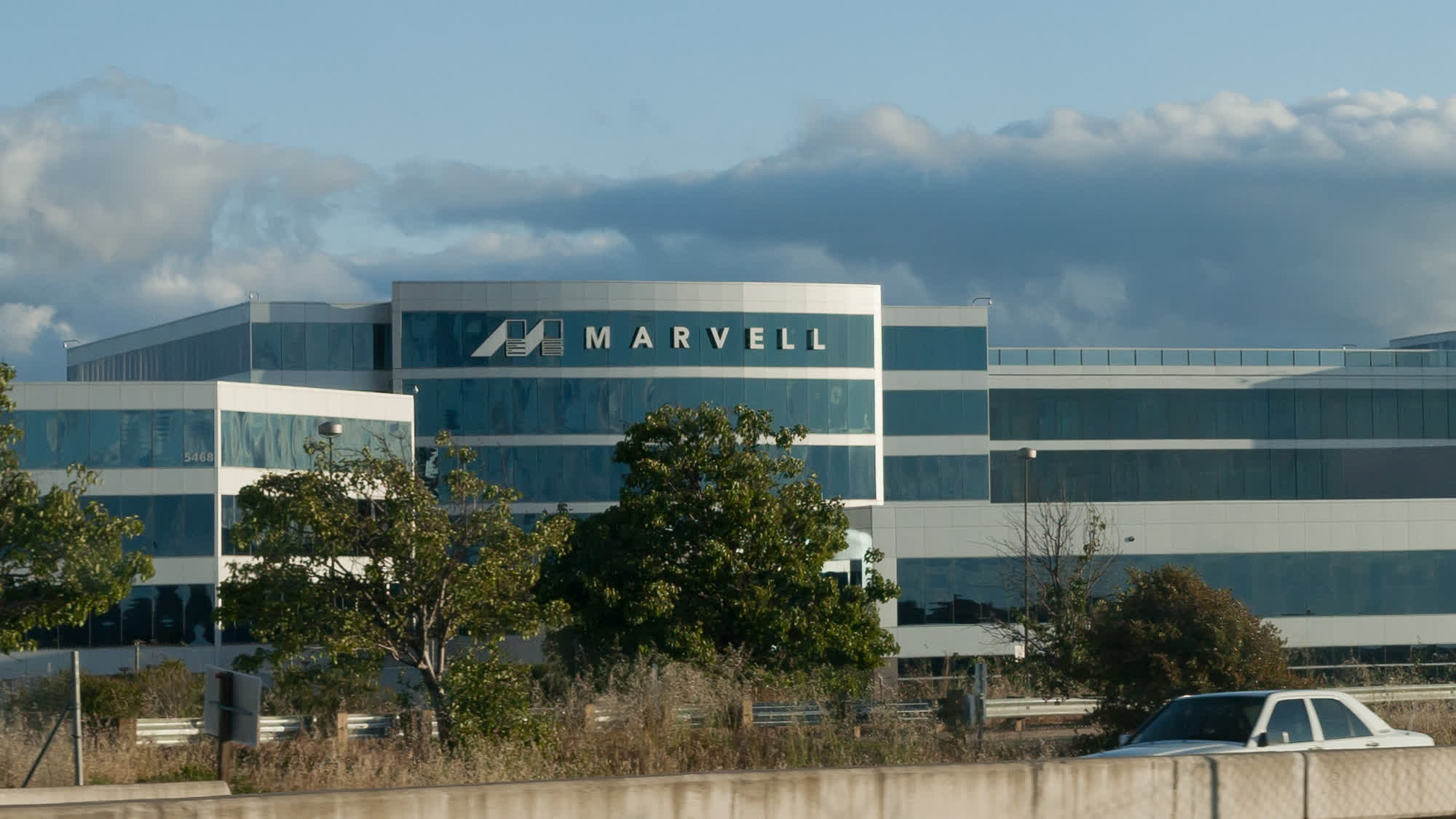Serving tech enthusiasts for over 25 years.
TechSpot means tech analysis and advice you can trust.
What just happened? The shares of American chipmaker Marvell Technology surged to a record high last week following positive Q3 results and an upbeat Q4 forecast. After briefly touching $102 billion on Wednesday, the company's market cap settled at $98.22 billion, higher than Intel's $90.23 billion.
Marvell, headquartered in Santa Clara, California, was founded in the mid-nineties, making it much younger than Intel, which has been operational since the 1960s. Marvell develops custom semiconductor products that have seen a surge in demand in recent months due to the AI boom.
The company's Q3 2025 earnings beat analyst expectations, leading to a massive surge in its stock price. Its revenue of $1.52 billion is seven percent higher year-over-year, mainly driven by better sales and robust demand from the AI sector. Marvell also issued impressive Q4 guidance, projecting $1.8 billion in revenue and a 60-percent non-GAAP gross margin.

Marvell offers a broad product portfolio of data infrastructure semiconductor solutions spanning computing, networking, security, and storage.
It makes infotainment and connectivity solutions for the automotive sector, ASIC chips for wired and wireless networking, data center switches, data processing units, DCI optical modules, Ethernet components, SSD controllers, storage accelerators, and transimpedance amplifiers, and more.
Marvell designs most of its products for data centers and cloud operators. However, it also made chips for consumer devices prior to 2017, when Synaptics acquired that part of the business. Marvell's consumer-centric chips included the Armada 1500 Mini SoC (88DE3005) and Armada 1500 Mini Plus SoC (88DE3006), which power the Chromecast 1st-gen and 2nd-gen models. The company also supplied the Wi-Fi chip for the first-generation iPhone almost two decades ago.
While Marvell enjoys the benefits of the AI boom, Intel's cup of woes is getting deeper by the day. Intel CEO Pat Gelsinger recently resigned following another disappointing quarter, while its stock price is currently down nearly 70 percent from its all-time high. The company laid off 15 percent of its staff in August to reduce costs. Last month, the chipmaker lost its spot in the Dow Jones Industrial Average to Nvidia.









 English (US) ·
English (US) ·